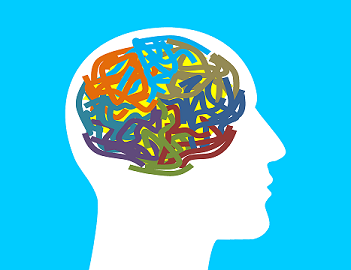Is Good Mental Health Achievable?
Good mental health is the cornerstone of a balanced, successful, and happy life. It's not just about the absence of mental illness, but also includes overall well-being, the ability to manage stress, and positive social interactions. In this article, we will explore the concept of mental health, the factors that affect it, and practical strategies that can be adopted to achieve good mental health.
1. Concept of Mental Health
Mental health is not just the absence of mental illnesses but a state of well-being in which an individual feels happy, balanced, and capable of dealing with daily challenges. According to the World Health Organization, mental health is defined as "a state of well-being in which the individual realizes his or her own abilities, can cope with the normal stresses of life, can work productively and fruitfully, and is able to make a contribution to his or her community."
Dimensions of Mental Health:
Psychological well-being: Includes the ability to enjoy life and deal with stresses and challenges positively.
Emotional balance: The ability to express emotions healthily and control responses.
Adaptability: Handling life changes and stresses flexibly.
Social relationships: Establishing healthy and productive relationships with others.
2. Factors Affecting Mental Health
 There are many factors that affect mental health, which can be classified into internal and external factors.
There are many factors that affect mental health, which can be classified into internal and external factors.
2.1. Internal Factors
Genetics and heredity: Genetic factors play a role in predisposing individuals to certain mental illnesses. While genetic factors cannot be changed, steps can be taken to generally improve mental health.
Personal entity: Includes an individual's self-perception, self-confidence, and ability to achieve personal goals. These factors can significantly impact mental health.
Physical health: Overall health, nutrition, and sleep can affect mental health. For example, sleep problems or poor nutrition can lead to increased feelings of anxiety and depression.
2.2. External Factors
Life stresses: Major life changes such as job loss, financial problems, or personal relationships can affect mental health.
Social support: Having a strong support network of friends and family can have a positive impact on mental health.
Surrounding environment: The work environment, living conditions, and the community at large can affect the psychological state. A negative or unsupportive environment can lead to psychological problems.
3. Strategies for Achieving Good Mental Health
 Achieving good mental health requires adopting a variety of strategies aimed at improving psychological well-being and effectively dealing with challenges.
Achieving good mental health requires adopting a variety of strategies aimed at improving psychological well-being and effectively dealing with challenges.
3.1. Practicing Self-Care
Self-care is a set of activities aimed at improving mental and physical health. Self-care includes:
Good nutrition: Eating a balanced diet rich in essential vitamins and minerals can improve mood and increase energy levels.
Exercise: Physical activity helps release happiness hormones such as endorphins and reduces anxiety and depression levels. Try to exercise regularly, such as walking, swimming, or cycling.
Good sleep: Getting enough sleep is important for mental health. Try to maintain a consistent sleep routine and ensure a quiet and comfortable sleeping environment.
3.2. Developing Coping Skills
Developing coping skills can help handle life stresses and challenges more effectively:
Organization and management: Use time management and organization techniques to reduce stresses. Organize your tasks and set priorities to avoid feeling overwhelmed.
Relaxation techniques: Learn relaxation techniques such as deep breathing, meditation, or yoga to help reduce stress and anxiety levels.
Problem-solving: Developing problem-solving skills can help effectively deal with challenges. Use critical thinking and look for practical solutions to your problems.
3.3. Building Healthy Relationships
Good social relationships play an important role in mental health:
Effective communication: Learn good communication skills to build healthy relationships with others. Share your feelings and thoughts clearly and listen to others.
Social time: Spending time with friends and family can enhance psychological well-being. Make time for social activities that you enjoy.
Seeking support: Do not hesitate to seek help from friends, family, or professionals when needed. Asking for support is a sign of strength, not weakness.
3.4. Caring for Mental Health
Caring for mental health includes:
Talking to a specialist: If you are experiencing persistent psychological issues, it is important to consult a psychologist or specialized counselor. Psychotherapy can provide you with the tools and resources needed to deal with psychological issues.
Positive thinking: Try to practice positive thinking and change negative thoughts. Use techniques such as gratitude journals or positive affirmations to improve your mood.
Self-education: Learning more about mental health and related topics can help you better understand yourself and take positive steps to improve your mental state.
4. The Importance of Achieving Balance
 Achieving good mental health requires reaching a balance between various aspects of life. Balance includes:
Achieving good mental health requires reaching a balance between various aspects of life. Balance includes:
Work-life balance: Try to achieve a balance between work and personal activities. Set aside time for rest and relaxation away from work pressures.
Balance between physical activity and rest: Make sure you give yourself enough time to rest after physical exercise.
Balance between personal relationships and individual thinking: Make sure to build healthy relationships with others, while also dedicating time for yourself and your personal goals.
5. Conclusion
Good mental health is essential for a successful and happy life. Achieving mental health requires attention to various factors such as stress management, developing coping skills, and seeking social support. By practicing self-care and adopting positive thinking techniques, you can improve your mental health and enjoy a better quality of life. Start today by making small adjustments to your daily routine and...







